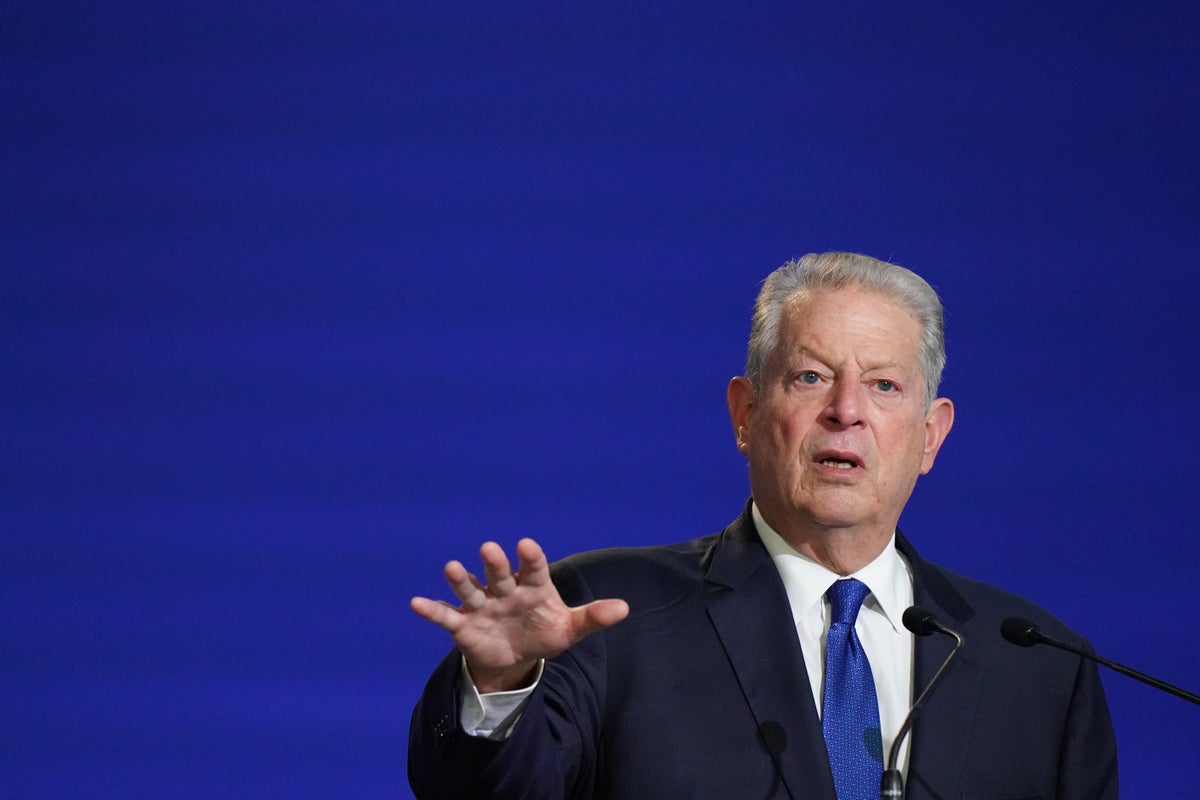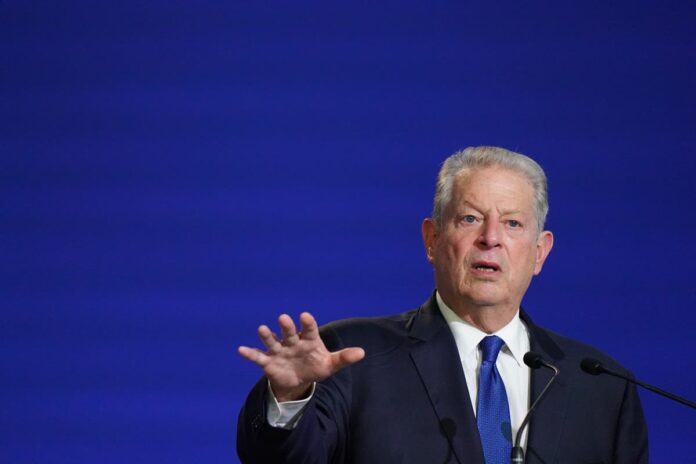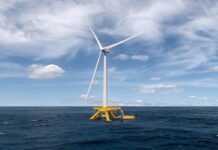[ad_1]

Former vice president Al Gore compared climate crisis denialism to the inaction among dozens of law enforcement officers who failed in their response to the massacre of 19 children and two teachers at an elementary school in Uvalde, Texas.
“Climate deniers are really in some ways similar to almost 400 law enforcement officers in Uvalde, Texas, who were waiting outside an unlocked door while the children were being massacred – they heard the screams, they heard the gunshots, and nobody stepped forward,” Mr Gore told NBC’s Meet the Press in an interview that aired on 24 July.
“And God bless those families who have suffered so much … Law enforcement officials tell us that’s not typical of what law enforcement usually does,” he added. “Confronted with this global emergency, what we’re doing with our inaction, and failing to walk through the door and stop the killing, is not typical of what we’re capable of as human beings.”
Law enforcement officers on the scene of the massacre at Robb Elementary School in Uvalde on 24 May failed to follow “active shooter” protocol, which would instruct officers to immediately engage the gunman; the heavily armed and armoured officers instead waited more than an hour on the other side of a hallway while the attack was ongoing.
Climate skepticism or dismissal among Republican US officials as well as an evasive legislative response to the crisis among both parties in Congress have repeatedly constrained efforts among lawmakers to address the issue.
This month, potential climate legislation fell apart after Democratic US Senator Joe Manchin – who has long-standing business ties to the coal industry – said he would not support a budget bill that includes climate or tax provisions.
His rejection dealt a critical blow to President Joe Biden’s climate agenda, potentially setting US efforts back as scientists warn that the clock is ticking to radically reduce planet-polluting emissions by 2035 to avoid catastrophic warming.
Mr Biden’s administration is also under pressure to declare a climate emergency to cut through some political obstacles and salvage his climate agenda.
John Kerry, the US special envoy for climate, told The New York Times that the president is “very close” to declaring a national climate emergency, saying that “it’s a matter of timing”.
Declaring a climate emergency would unlock critical response abilities, including freezing fossil fuel development at the federal level and shifting to clean-energy projects without having to wait on congression action.
Climate advocates and Democratic members of Congress have expanded their calls for the White House to take action during a summer of dangerous heatwaves impacting millions of Americans, along with explosive wildfires and more intense storms over warming seas threaten coastal communities.
“We do have the solutions and I think these extreme events that are getting steadily worse and more severe are really beginning to change minds,” Mr Gore added. “We have to have unity as a nation, to come together and stop making this a political football. It shouldn’t be a partisan issue.”
He also said congressional inaction on climate reflects a crisis of democracy.
“Our democracy is broken, and in order to solve the climate crisis, we’’re gonna have to pay attention to the democracy crisis,” he said. “The same reason it’s impossible for the Congress to pass legislation banning these weapons of war, these assault rifles being used to kill children in classrooms … The same reason we can’t pass legislation … to reinstate the ban on assault weapons is the same reason that we can’t pass climate legislation: We have a minority government.”
He called on Democratic senators to abolish the filibuster rules that allow Republican obstruction of bills introduced in the chamber despite holding a minority of seats, and he condemned lobbyists’ influence hamstringing legislation.
[ad_2]
Source link















